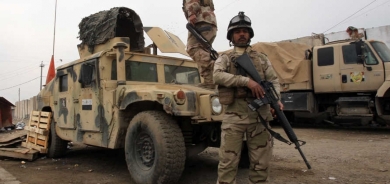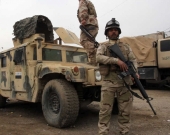Iraq crisis: UN launches new aid effort in north Iraq

Tents and other goods will be sent to the Kurdish city of Irbil via air, road and sea, the UNHCR said.
Meanwhile a BBC correspondent at the strategically important Mosul Dam says Kurdish and Iraqi forces have retaken it from Islamic State (IS) militants.
IS forces have captured large parts of northern Iraq in recent weeks.
"UNHCR is this week launching one of its largest aid pushes," the agency's spokesman Adrian Edwards told reporters.
Aid will first be sent by air from Jordan, beginning on Wednesday. More goods will be sent by road from Turkey, and by sea from Dubai and Iran.
"This is a major humanitarian crisis and disaster, and it continues to affect very large numbers of people," Mr Edwards said.
An estimated 1.2 million Iraqis have been displaced so far in 2014, according to the UN agency - more than 500,000 from fighting in the Anbar region, and another 600,000 displaced from conflicts around Mosul and more recently Sinjar.
"Conditions remain desperate for those without access to suitable shelter - people struggling to find food and water to feed their families, and those without access to primary medical care," the organisation said in a statement.
Dam recaptured
Meanwhile Western powers are stepping up efforts to stem the advance of IS by supporting Kurdish and Iraqi government forces in northern Iraq.
On Monday, US President Barack Obama said that the Mosul Dam in northern Iraq had been recaptured by Kurdish forces, a key gain against the militants.
Mr Obama said the US helped in the operation by launching air strikes targeting IS positions around the dam, Iraq's largest.
He said the move was a "major step forward", and that the US had begun a long-term strategy to defeat the militants, including the building of a humanitarian "international coalition" in response to the crisis faced by refugees.
Recapturing the dam has been a key focus of the last few days, due to warnings of catastrophic ramifications if the dam came under the control of IS militants who did not have the capabilities to carry out essential maintenance work on it.
According to US assessments, the dam has the potential to cause severe flooding in Mosul, and possibly even affect areas as far south as Baghdad.
The BBC's Jim Muir, who is at the dam complex, says that after several days of fighting, it is now firmly in the hands of Kurdish and Iraqi government forces.
However, hostilities are not completely over in the area, our correspondent reports.
He says the roadside and entrances to the complex are littered with debris and wreckage following American air strikes, as well as the remains of explosives left behind by IS militants.
A short distance away to the south west, gunfire and explosives have been sending smoke into the sky as Kurdish forces try to push their front lines further into the low hills nearby, he says.
BBC














